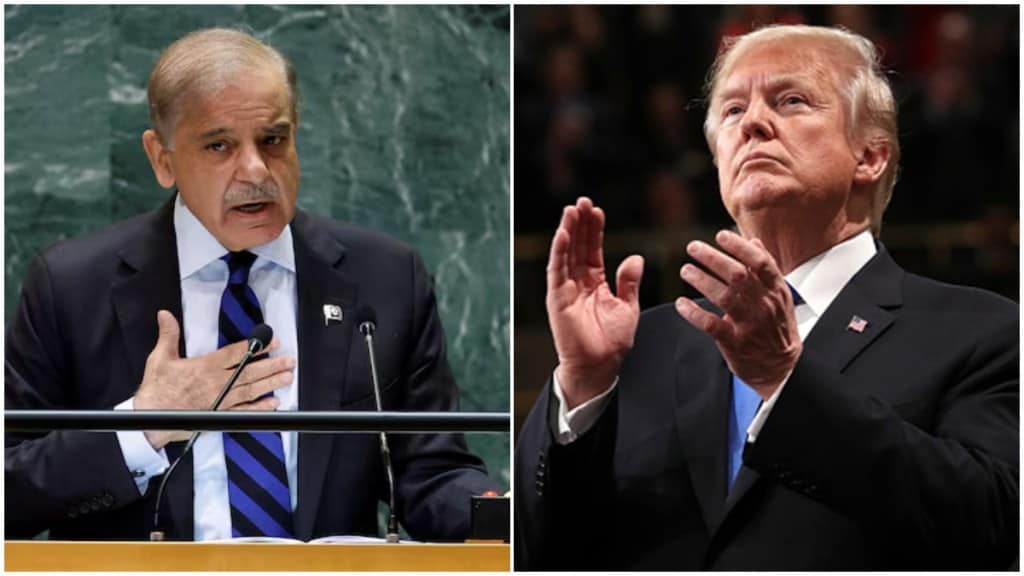US President Donald Trump is warming up to Pakistan faster than the world anticipated. With his recent announcement of “massive” oil partnership, Trump’s moves suggest a clear shift in his foreign focus. His growing friendship with Pakistan is grabbing attention around the world, especially from New Delhi. Hosting Pak officials for lunches in the past to the trade announcements, Trump seems to be building a stronger partnership with Islamabad. But what are the factors that are playing a key role in Trump’s shifting stance? We break it down for you here:
Bonding over crypto
Pakistan views crypto as an economic lifeline, considering their economic hardships and limited access to global capital. They have established the Pakistan Crypto Council (now the Pakistan Digital Asset Authority), setting the stage for regulation and large-scale crypto adoption, with the Trump-backed World Liberty Financial (WLF) as a pivotal player.
This gives the Trump family substantial financial benefit while aligning US-Pakistan relations with innovation, youth outreach, and foreign investment. WLF is a majorly owned by Trump’s sons Eric, Donald Jr, and son-in-law Jared Kushner. This partnership aims to develop blockchain, legalise crypto trading, and launch Trump-branded tokens and blockchain projects in Pakistan.
So, Trump’s close circle is already involved. Former Binance CEO Changpeng Zhao, who wants a pardon from Trump after a US jail term, is now advising Pakistan on crypto rules. Pakistan’s crypto minister Bilal bin Saqib has even called Trump “the president who saved crypto”.
Trump’s interest in Pak’s mining and minerals
Trump on Thursday announced that the United States will work with Pakistan in developing their oil reserves. He went on to say that one day India could buy oil from Pakistan. The statement and the new deal clearly shows that Trump is now focusing on trade with Pakistan by offering more investments and possibly lower tariffs.
Trump may see Pakistan as a potential partner because the country claims to have huge untapped reserves of oil, copper, gold, lithium, and rare earth elements. These minerals are essential for making clean energy technologies and batteries and electronics. Estimates suggest Pakistan’s mineral wealth could be worth anywhere between $8 trillion to $50 trillion, as per foreignpolicy.com and foxbusiness.
Another major reason behind Trump’s interest could be to reduce America’s dependence on China for critical minerals. China currently controls much of the world’s supply. Pakistan’s Balochistan region, especially the Reko Diq copper-gold mine, is seen as a key target for US companies.
As per Independent, Eric Meyer, a senior US official had met Pakistan’s Prime Minister at a mining forum in Islamabad in April this year. The US had shown clear interest in exploring Pakistan’s mineral resources, especially copper, gold, and lithium.
Resolving challenges in the Middle East
The US does not have strong diplomatic relations with Iran, but Pakistan does. This puts Pakistan in a unique position. If Trump wants to ease tensions with Iran, especially during their conflict with Israel, the US prez could use Pakistan as a bridge to start private talks or reduce the risks of war.
Pakistan had in June this year publicly criticised US airstrikes on Iran and called for peaceful talks instead. This lines up with Trump’s stated preference to avoid long wars and focus on negotiation, which was proven when he announced a one-sided ceasefire between Israel and Iran.
Trump had met and hosted Pakistan’s army chief Asim Munir at the White House on June 18. The lunch lasted two hours and US Secretary of State Marco Rubio and Special Representative Steve Witkoff were also in attendance. Because Pakistan shares a long 900-km border with Iran and has close ties with it, it could help mediate and push for calm in the region. Munir reportedly advised Trump to avoid supporting Israel’s military action and instead work on reducing tensions.
While there’s no public proof that Trump is directly using Pakistan to fix Middle East issues, his recent meetings and trade talks with Pakistan hint at a new strategy. Trump may be trying to use Pakistan’s location and diplomatic connections to gain influence in the region.


